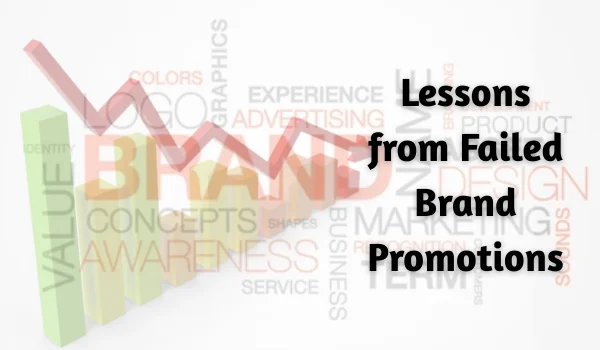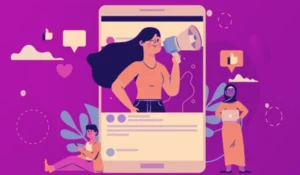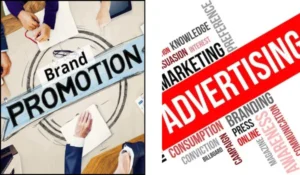Brand promotion is a powerful tool — it can elevate a company to iconic status or plunge it into public backlash overnight. While successful campaigns become marketing case studies, failed brand promotions offer just as many, if not more, lessons.
In today’s competitive digital world, it’s important for businesses—especially startups and small enterprises—to understand what not to do when promoting their brand. From tone-deaf messaging to poor audience targeting, the path to brand damage is littered with avoidable mistakes.
In this post, we’ll break down some of the most infamous failed brand promotions, analyze why they failed, and share practical tips to avoid similar pitfalls in your own branding efforts.
📉 Why Brand Promotions Fail
Not all brand promotions are created equal. Some campaigns fail because of poor planning, while others collapse due to a disconnect between the brand and its audience. Here are common reasons promotions fail:
- Misunderstanding the target audience
- Ignoring cultural sensitivities
- Overhyping or underdelivering
- Poor timing of campaigns
- Inauthentic brand messaging
- Lack of research or testing before launch
📊 Famous Brand Promotion Failures and Lessons

| Brand | Campaign | What Went Wrong | Key Lesson |
|---|---|---|---|
| Pepsi | Kendall Jenner Ad (2017) | Trivialized serious social issues (Black Lives Matter protests) | Don’t exploit real-world issues insensitively |
| Dove | Facebook Ad (2017) | Ad showed Black woman turning into a white woman | Test content for racial/cultural insensitivity |
| Snapdeal | Aamir Khan Controversy (2015) | Public backlash over actor’s comments hurt brand association | Choose brand ambassadors cautiously |
| Gap | “Manifest Destiny” T-shirt | Ignorance of colonial history and backlash | Always research historical/political context |
| New Coke (Coca-Cola) | Formula Change (1985) | Ignored customer loyalty to original taste | Don’t alienate existing customers |
| Calvin Klein | 1995 Ad Campaign | Perceived as sexually exploitative and inappropriate | Avoid shock value at the cost of brand image |
🧩 Deep Dive: What to Learn from These Brand Fails
1. Know Your Audience (Or Face the Fallout)
Example: Pepsi’s 2017 commercial featuring Kendall Jenner tried to tap into the spirit of youth-led activism. But it backfired — critics claimed it trivialized Black Lives Matter protests.
🔍 Lesson: Never assume you understand your audience — research deeply. If you’re referencing real-world issues, tread carefully and consult people from those communities.
2. Cultural Sensitivity is Non-Negotiable
Example: Dove’s ad showing a Black woman turning into a white woman was interpreted as racist and sparked social media outrage.
🔍 Lesson: Diversity and inclusion aren’t optional anymore. Always test your visuals and language with a diverse focus group before launching. What seems creative to your team may offend others.
3. Be Authentic — Not Opportunistic
Example: Gap’s “Manifest Destiny” T-shirt was a history fail. The phrase is associated with American colonialism and oppression of Native Americans.
🔍 Lesson: Align your promotions with your core brand values. Avoid hopping on historical, political, or social narratives unless your brand is authentically rooted in them.
4. Don’t Undermine Loyal Customers
Example: Coca-Cola replaced its original formula with “New Coke” in 1985. The backlash was massive; consumers demanded the return of the classic formula.
🔍 Lesson: Never disregard brand loyalty. Changes should feel like evolution, not replacement. Survey your current customers before making bold moves.
5. Celebrity Endorsements are Double-Edged Swords
Example: Snapdeal faced backlash when its brand ambassador Aamir Khan made political comments. Although the company had no part in his statement, it bore the brunt of public anger.
🔍 Lesson: Choose ambassadors whose public persona aligns with your brand. Monitor potential PR risks in their public behavior or views.
✅ How to Avoid Brand Promotion Pitfalls: Key Strategies
Here are actionable steps to avoid the common mistakes that have sunk even the biggest brands:
| Strategy | Why It Matters |
|---|---|
| Deep Audience Research | Prevents tone-deaf or irrelevant content |
| Diverse Team & Feedback Loops | Detects culturally or socially insensitive material |
| A/B Testing Campaigns | Tests what works before full-scale rollout |
| Monitoring Social Sentiment | Alerts you early to backlash or misunderstandings |
| Clear Brand Guidelines | Maintains message consistency and brand tone |
| Regular Training for Marketers | Keeps your team updated on cultural shifts, consumer trends |
| Contingency Planning | Helps you recover quickly from negative publicity |
🎯 A Real-World Tip from My Experience
In my own real estate brand promotion project, I once launched a campaign targeting millennials using flashy graphics and short-form ads. While it looked good on paper, it flopped because we didn’t speak their language — we were focused on selling property, not experiences.
We revisited the plan and switched to video storytelling, showed real client journeys, used UGC (user-generated content), and communicated financial empowerment instead of just “luxury living.” Engagement soared, and conversions improved by 3X.
🔍 Moral: Always test, learn, and adapt. What worked last year may not work this year.
👨💼 Why You Need an Experienced Brand Promotion Expert
While you can DIY your brand promotions, navigating today’s fast-paced, sensitive, and multi-channel environment is complex. One mistake can ruin months of effort — or worse, damage your brand reputation permanently.
Here’s why experienced professionals matter:
- They understand audience psychology and trends
- They know what’s appropriate and what’s risky
- They have tested frameworks and strategies
- They can help you prevent PR disasters before they happen
- They bring objectivity and emotional distance to evaluate ideas critically
Hiring a brand promotion expert isn’t just about creativity — it’s about protecting and amplifying your brand’s voice responsibly.
🧠 Final Thoughts
Failed brand promotions teach us that what you say matters just as much as how, where, and when you say it. In an era where consumers are highly aware, socially active, and culturally diverse, brand promotions must be respectful, relevant, and authentic.
Use the failures of major brands as a blueprint for what to avoid. Be bold, but never be blind. And when in doubt — consult an experienced hand to steer your strategy in the right direction.



